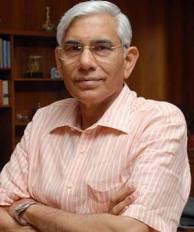Comptroller and Auditor General of India is the Supreme Audit Institution of India.
Appointment
The Comptroller and Auditor General of India (CAG) is appointed by President of India under Article 148(1) of the Constitution of India.Article 148(1) of the Constitution of India states that “There shall be a Comptroller and Auditor-General of India who shall be appointed by the President by warrant under his hand and seal and shall only be removed from office in like manner and on the like grounds as a Judge of the Supreme Court.”
Duties & Power
The Comptroller and Auditor General of India has been given rights under Article 149 to check and maintain the accounts of Central Government as well as states. Under Article 150 Comptroller and Auditor General also has the right and duty to prescribe to the President of India on how the accounts should be maintained.Article 149 of the Constitution of India states that “The Comptroller and Auditor-General (CAG) shall perform such duties and exercise such powers in relation to the accounts of the Union and of the States and of any other authority or body as may be prescribed by or under any law made by Parliament and, until provision in that behalf is so made, shall perform such duties and exercise such powers in relation to the accounts of the Union and of the States as were conferred on or exercisable by the Auditor-General of India immediately before the commencement of this Constitution in relation to the accounts of the Dominion of India and of the Provinces respectively.”
Article 150 of the Constitution of India states that “The accounts of the Union and of the States shall be kept in such form as the President may, 2[on the advice of] the Comptroller and Auditor-General of India, prescribe.”
Reporting
Under Article 151 of the Constitution of India, The Comptroller and Auditor General (CAG) of submits reports the reports related to Union Government to the President of India (who then causes it to be laid in Parliament) and reports related to State Governments to Governor of the State (who then causes it to be laid in respective assemblies).
Vision of CAG
The vision of CAG as mentioned in the charter is:-
“The vision of SAI (Supreme Audit Authority of India i.e. CAG) represents what we aspire to become; We strive to be global leader and initiator of national and international best practices in public sector auditing and accounting and recognised for independent, credible, balanced and timely reporting on public finance and governance.”
Mission of CAG
The mission of CAG as mentioned in the charter is:-
“Our mission enunciates our current role and describes what we are doing today: Mandated by the Constitution of India, we promote accountability, transparency and good governance through high quality auditing and accounting and provide independent assurance to our stakeholders, the Legislature, the Executive and the Public, that public funds are being used efficiently and for intended purposes.”
Provisions governing CAG
- Article 148, 149, 150 and 151 of the Constitution of India
- CAG’s Duties, Power and Conditions of Service Act, 1971
- Regulations on Audit and Account, 2007
- CAT’s Judgement order dated 30/03/2011
- Judgement by High Court of New Delhi dated 27th Jan, 2010
Tenure
The tenure of CAG’s office is 6 years or attainment of age of 65 or resignation in writing to President of India whichever is earlier.
Salary
The CAG is paid salary equal to the Judge of Supreme Court of India.
Oath of CAG
Under Article 148 (2) the CAG of India has to take the following oath as mentioned in Schedule 3 of the Constitution of India:-
“I, A.B., having been Comptroller and Auditor-General of India do swear in the name of God that I will bear true faith and allegiance to the Constitution of India as by law established, that I will uphold the sovereignty and integrity of India, that I will duly and faithfully and to the best of my ability, knowledge and judgment perform the duties of my office without fear or favour, affection or ill-will and that I will uphold the Constitution and the laws.”
 |
| Vinod Rai - CAG of India |
Other provisions governing CAG
- The Comptroller and Auditor General of India is not eligible for any further office after retirement in either State Government or Union Government under Article 148(4) of the Constitution.148(4) of the Constitution.
- The CAG is the Head of Indian Audit and Accounts Department.
- List of Comptroller and Auditor Generals of India
List of CAG's of Independent India
- V Narhari Rao (1948-1954) (First CAG of Independent India)
- A. K. Chanda (1954 - 1960)
- A. K. Roy (1960 - 1966)
- S. Ranganathan (1966 - 1972)
- A. Baksi (1972 -1978)
- Gian Prakash (1978 - 1984)
- T. N. Chaturvedi (1984 - 1990)
- C. G. Somiah (1990 - 1996)
- V. K. Shunglu (1996 - 2002)
- V. N. Kaul (2002 - 2008)
- Vinod Rai (2008 - )
Related Links
Also Visit For
~~~~~~~~~~~~~~~~~~~~~
- Useful Information (Info Link Zone )
- In NEWS Person
- Indian Exams Zone (Alerts, Guidance n Tips)
- Indian Railways News n Alerts
- Sarkari Naukari (Govt. Jobs) NEWS Updates
- General Knowledge (For Exams)
- Latest Current Affairs (Monthly N Weekly)
- Books Review Zone (also for Competitive Exams Book)
- Positive Inspirational Quotes
- Competitive Exams Coaching Reviews










::::Your Comments are Valuable for Us-Post your queries below::::.